
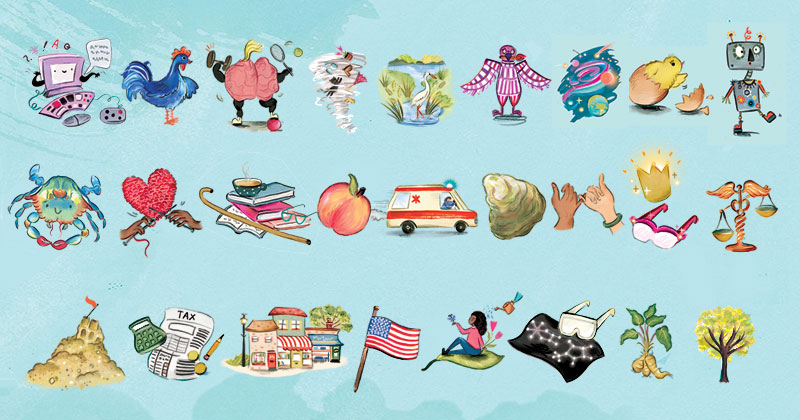

UD in DE, from A to Z
26 ways UD helps enhance the state
January 24, 2023
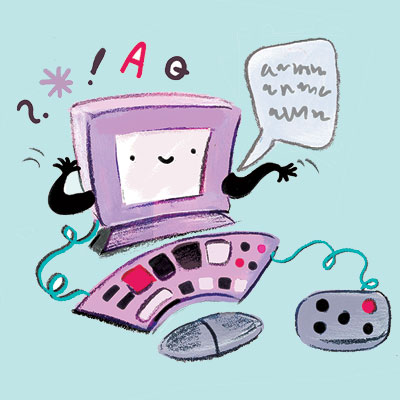
Alternative keyboards
and other assistive technologies designed to help people with disabilities live independently, safely and successfully. UD’s newly opened Kent/Sussex Assistive Technology Resource Center in Milford, Delaware, houses hundreds of these devices, available for free loan across the state.
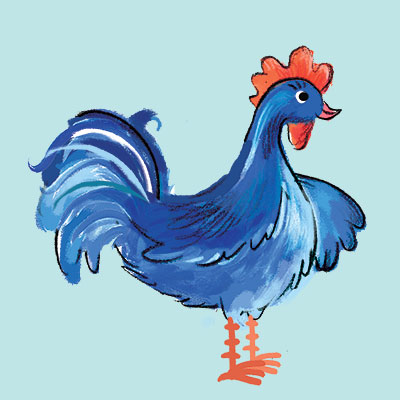
Best place to work
UD has been consistently recognized by Forbes as one of America’s Best-in-State Employers. UD’s roughly 4,700 employees work primarily in Newark but also in Wilmington, Dover, Georgetown and Lewes.
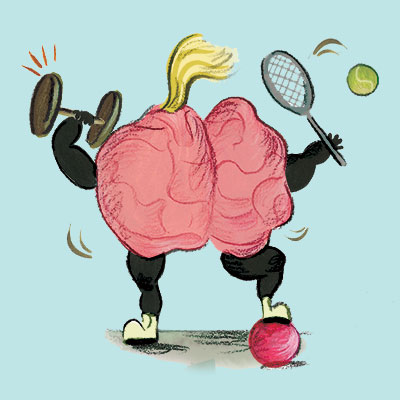
Cognition
UD has established the Delaware Center for Cognitive Aging Research to facilitate innovative, patient-centered research. As many as 19,000 Delawareans live with Alzheimer’s disease, and the new center educates the community on modifiable risk factors and addresses mild cognitive impairment before it progresses to dementia.
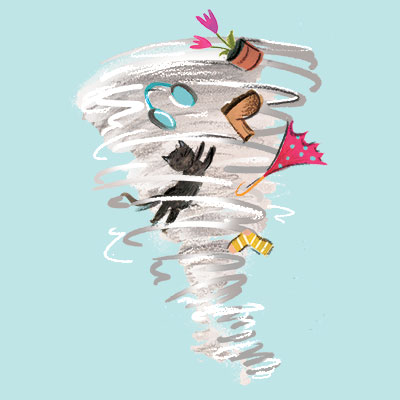
Disaster preparedness
Sixty years ago, the Ash Wednesday nor'easter destroyed 1,932 houses along Delaware’s coast. Across UD–from Sea Grant to the globally recognized Disaster Research Center–UD experts are working to prevent such devastation from happening again.
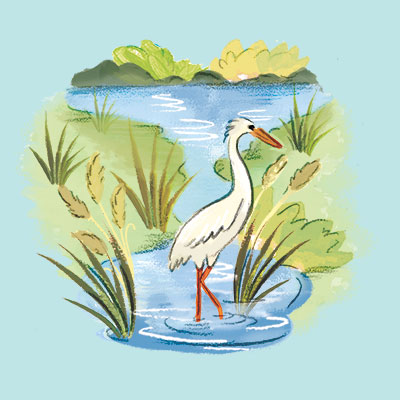
Estuary
An estuary is the coastal water body where freshwater from rivers and streams mixes with salt
water from the ocean. The Delaware Estuary is losing about an acre per day of tidal wetlands, a problem that could worsen as sea level rise accelerates and land development intensifies along coastlines, causing what’s known as “coastal squeeze.” UD faculty are leading a four-year project to examine this problem from both sides (land and sea) and study ways living shoreline systems, such as oysters, can help us adapt and maybe even restore some of the damage.
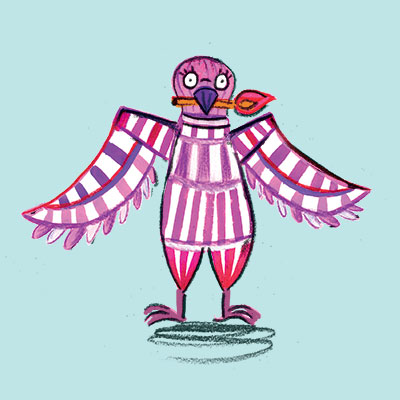
Folklore
A playground in Tidewater Park that honors the history and folklore of the Nanticoke Indian Tribe opened last year thanks to a joint project between UD and the town of Laurel, Delaware. The playground highlights stories of the land’s first inhabitants, the Nanticoke, using symbols such as the rainbow crow, beaver, squirrel and giant turtle. Designed by UD experts, each feature includes a plaque telling the story that it represents along with QR codes that allow curious visitors to learn more from a traditional storyteller.

Galaxy
The Delaware Space Grant Consortium administered by UD introduces Delaware high school and college students to careers in (or related to) outer space. “I was expecting to do data processing,” said Allyssa Tuano, EG21, who interned with NASA’s AMES Research Center in Mountain View, California, in 2019. “Now I look back and I think: Wow. They really had an intern developing design concepts. What an amazing opportunity.”
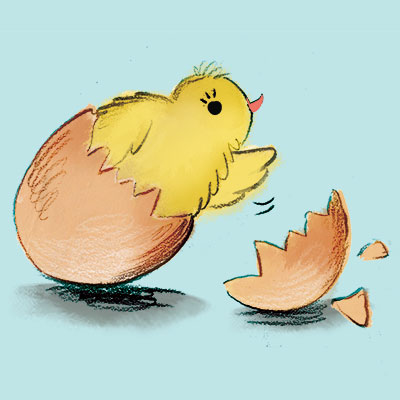
Hatching new ideas
From food trucks to fuel cells, more than 700 Delaware-based companies have hatched at Horn Entrepreneurship, a nationally ranked program that nurtures innovators and their ideas. Since 2012, these UD-born businesses have created almost 300 jobs and generated an estimated $31 million in follow-on funding.
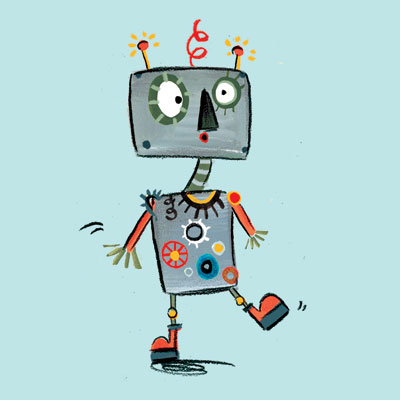
Innovation
UD is part of a new regional innovation network designed to accelerate the transformation of scientific discoveries into technologies that improve daily lives. The NSF Innovation Corps Northeast Hub is one of five new hubs in a nationwide network of universities formed to boost the economic impact of federally funded research—delivering benefits in health care, energy and the environment, computing, artificial intelligence, robotics, advanced materials and other areas—while building skills and opportunities among researchers from all backgrounds, including those historically underrepresented in entrepreneurship.
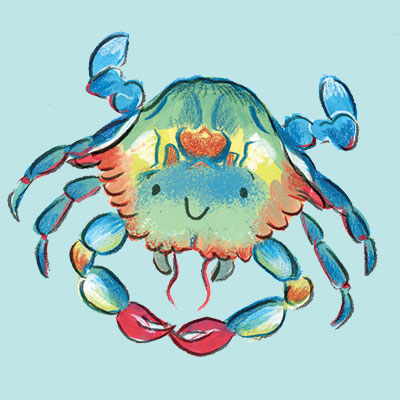
Junk removed from our streams
Both boat motors and bad storms can sever crab pot lines from their marker buoys. The derelict pots, now junk clogging up the inland bays, create navigational hazards, but they also become death traps for blue crabs, terrapin turtles and other marine life. Thanks to Delaware Sea Grant, more than 285 of these pots have been recovered from the inland bays since 2020, and recreational crabbers have access to regular training sessions on how to keep their pots intact.
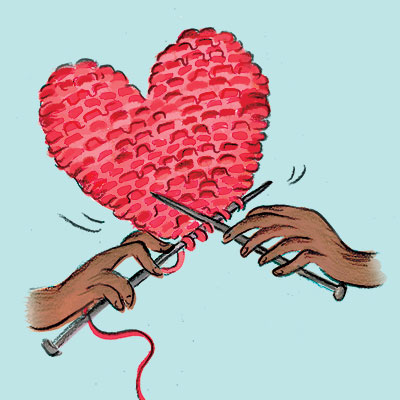
Knitting
UD students help the local community via knitting: matching hearts for COVID patients and their families, plus stuffed octopuses with tentacles specifically designed to soothe premature babies. The group has even participated in something known as “yarn bombing.” To raise awareness for Lyme disease, the students affixed lime green creations to parking meters, a clock tower and several building exteriors in downtown Newark. (The students are also responsible for the scarf that, during colder months, adorns a campus statue of Judge Hugh M. Morris, the late U.S. District Judge and namesake of UD’s Hugh M. Morris Library.)
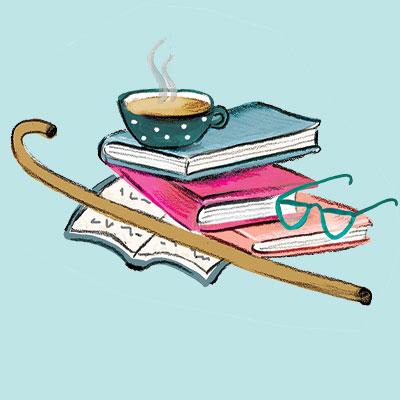
Lifelong learning
UD's Osher Lifelong Learning Institute has become the largest in the nation and serves members statewide. As a volunteer-driven learning cooperative for adults 50-plus, UD’s OLLI program has nearly 2,000 active members and offers about 300 classes via virtual classrooms and through in-person locations in Dover, Lewes, Ocean View and Wilmington.
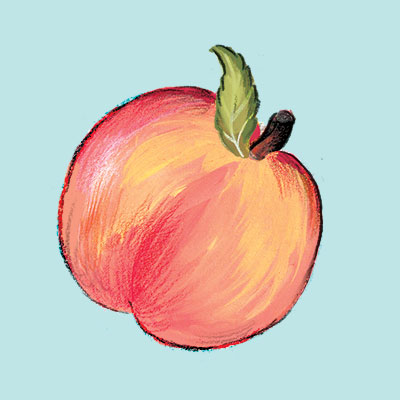
Master gardeners
With the help of UD’s Master Gardener program, the Lutheran Community Services Food Pantry in Wilmington produced more than 3,400 pounds of food. Delaware has nearly 300 Master Gardener volunteer educators; statewide, the Master Gardeners volunteer more than 20,000 hours per year.
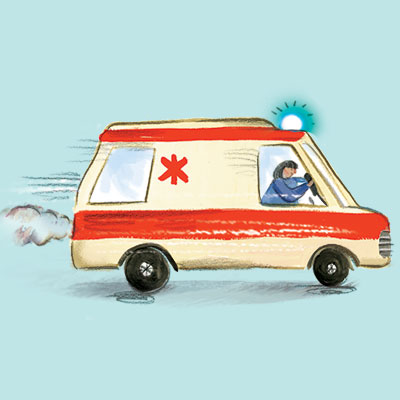
Nurses
To address the 800 unfilled nursing positions in the state every year, UD developed the Highmark Diversity Scholars program, an intensive workforce training initiative funded by Highmark Blue Cross Blue Shield Delaware to diversify healthcare workforce pipelines. Awarded to Delaware natives who receive partial tuition scholarships, the program also includes a mentorship program that matches scholars with a practicing clinician and minority faculty member. Meanwhile, UD’s online RN Refresher Program offers experienced nurses who have been on hiatus the opportunity to refresh their knowledge and skills, learn the (new) ropes and re-enter practice.
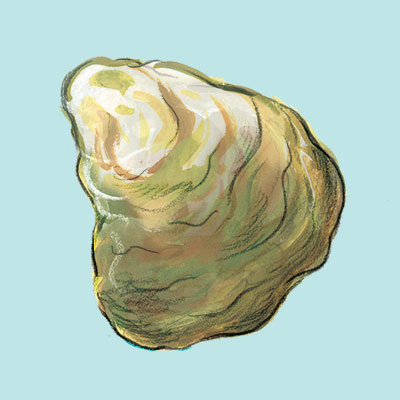
Oysters
A UD-based program aims to nurture 75 million baby oysters in Lewes in a new hatchery. These humble environmental helpers can each filter up to 50 gallons of water per day, helping the planet while providing an economic boost to the state’s aquaculture industry.
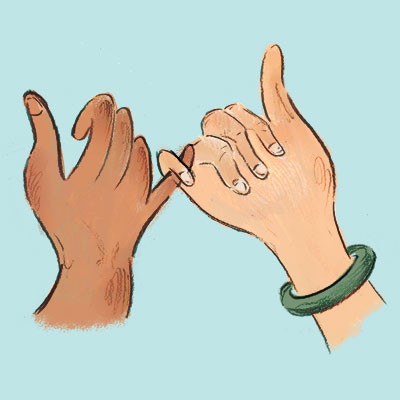
Promise
Through the First State Promise program, UD is helping Delawareans afford a world-class education that’s close to home. For most Delaware families with incomes less than $75,000, UD aims to cover full tuition for full-time students on the Newark campus. That includes about half of the families in the state, and those above the cutoff may receive other forms of financial aid.
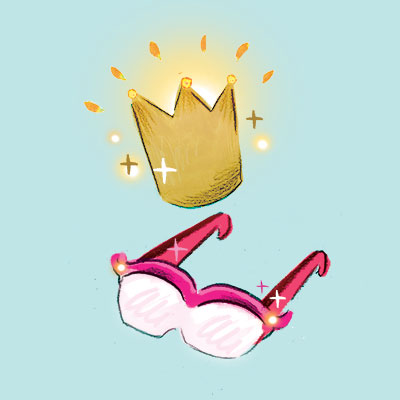
Queen of STEM
Current undergraduate student Jackie Means helped launch STEM Day in Delaware. Through her outreach, the medical diagnostics major and neuroscience minor inspires young women to pursue careers in the sciences.
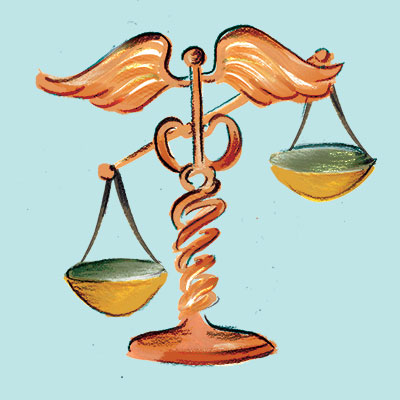
Reducing health disparities
Cooperative Extension agents address health disparities among rural and medically underserved communities via myriad initiatives. Most recently, they received a grant to educate Delawareans on COVID vaccines
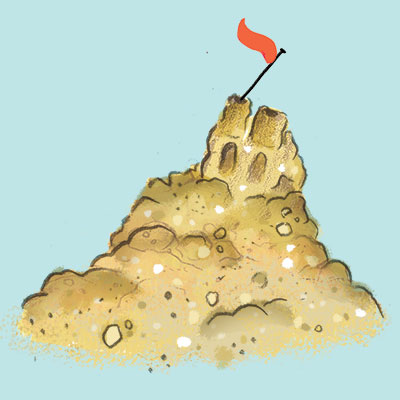
Sand
Using data collected via underwater sensors engineered by the Center for Applied Coastal Research, UD experts are building and fine-tuning computer models to predict sediment transport. These predictions are essential for coastal communities looking to safeguard homes and other infrastructure from beach erosion and flooding. The models will help determine who may need to evacuate in the leadup to a hurricane or nor’easter, and for deciding where to place jetties, breakwaters, sand bags and other protective assets.
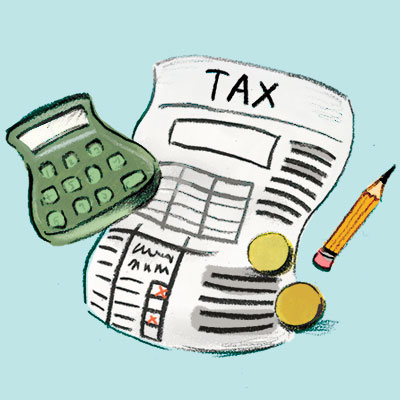
Taxes
Through the Lerner Tax Clinic, UD accounting students prepare free tax returns for low- to moderate-income Delawareans. Meanwhile, UD's Center for Economic Education and Entrepreneurship provides economic literacy and personal finance education to k-12 teachers and students across the state, helping more than 3,000 Delaware teachers each year alone.
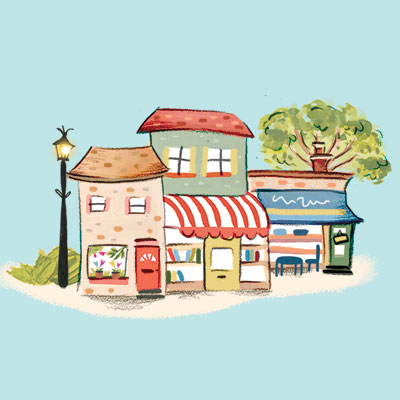
Underserved small business support
Delaware’s Small Business Development Center is working to reduce barriers and improve resource access for small business owners, particularly those from underserved or disadvantaged backgrounds. Most of Delaware’s 73,000 small businesses are privately or family owned–49% are women-owned and 52% are minority-owned.
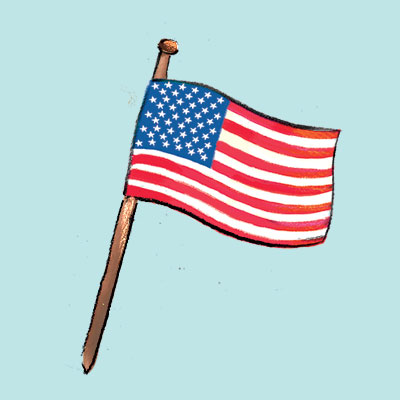
Veterans
On campus, approximately 350 enrolled students have served or are currently serving in a branch of the military, while around 400 are the dependents of veterans. Resources for this population include a Veteran and Military Success Center, which serves as a place to connect, find resources or simply hang out and study. Additionally, the University is actively developing strategies for creating more pathways to higher education for military personnel.
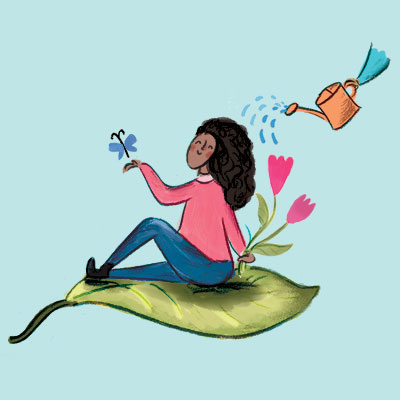
Wellbeing support
As the name suggests, UD’s Partnership for Healthy Communities partners with communities across the state to improve the health and wellbeing of all Delawareans. In one of its newest initiatives, 24 Wilmington residents have been trained as “ambassadors” to offer wellbeing guidance and support to those experiencing trauma.
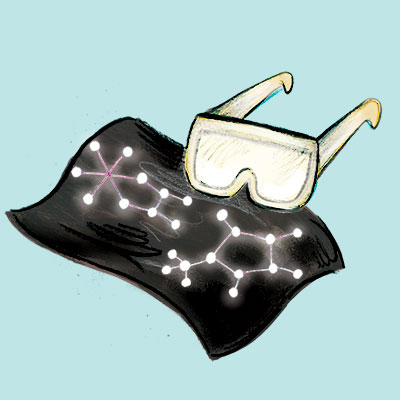
X-ray crystallography
This UD lab allows researchers to examine small-molecule crystals, which are often used to research new drug therapies. As an extension service, the facility accepts sample submissions from collaborators across the state.
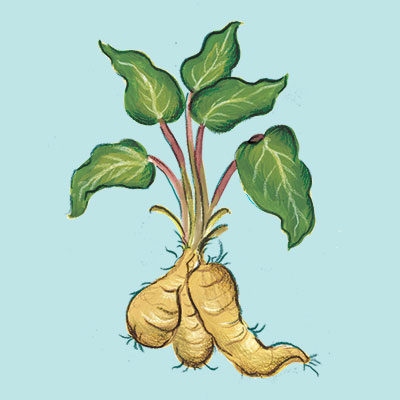
Yautias
Yautias are one of many food items that could help food pantries better meet the needs of the
diverse communities they serve. In addition to yautias (a tropical plant eaten much like potatoes), UD nutrition and dietetics students identified chorizo, okra, rotis and naan as other under-donated food opportunities. The students teamed up with the Food Bank of Delaware to study and ultimately enhance the availability of culturally relevant foods, particularly in areas with high international populations.
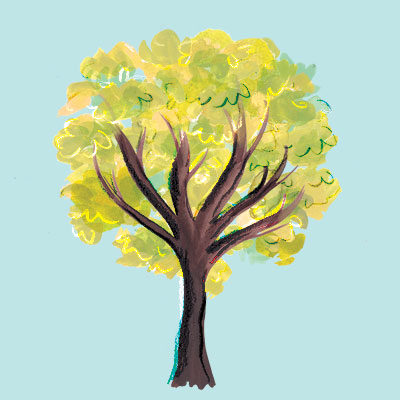
Zelkova tree
The tree is one of more than 4,000 plant species thriving within the University of Delaware Botanic Gardens. A 15-acre space that serves as a learning laboratory for students as well as the wider community, UDBG offers a robust lineup of lectures and workshops. Without a gate or an admission fee, it regularly draws green-thumbed enthusiasts as well as plant ignoramuses in need of fresh air or a moment of calm.
Contact Us
Have a UDaily story idea?
Contact us at ocm@udel.edu
Members of the press
Contact us at 302-831-NEWS or visit the Media Relations website


